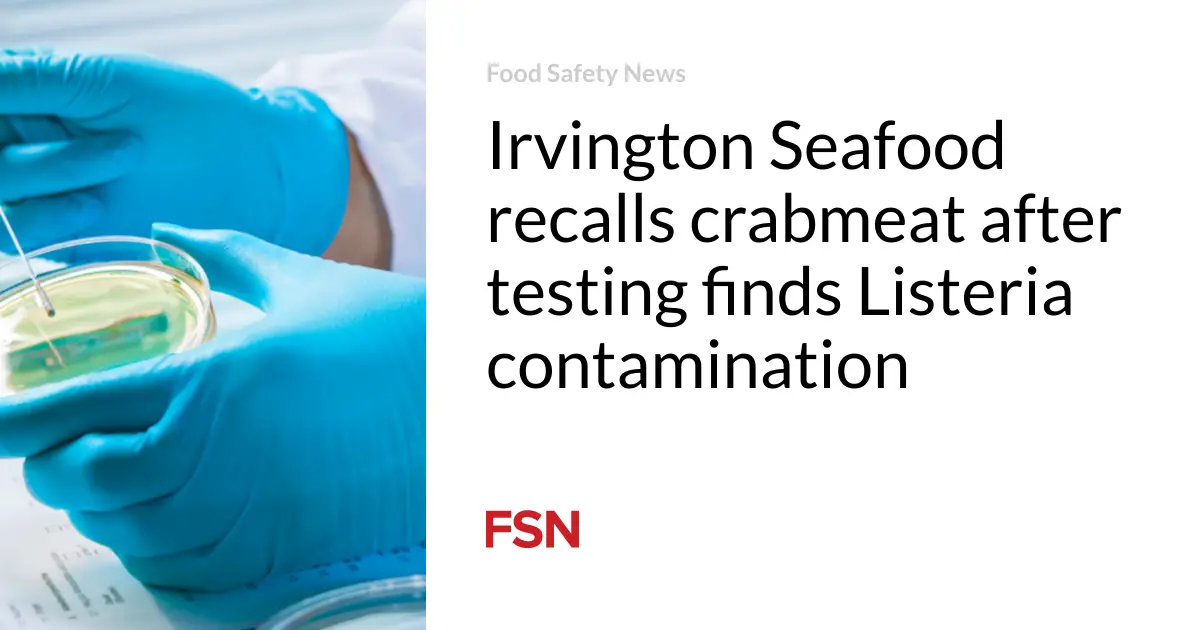
Irvington Seafood of Irvington, AL, is recalling its 1 lb. packages of “Crabmeat: Jumbo, Lump, Finger, and Claw meat” because they have the potential to be contaminated with Listeria monocytogenes.
Kevin Sakprasit, the owner of Irvington Seafood, received Finish Product Testing results on May 17, 2024, from EMSL Analytical, Inc. Crabmeat that was processed on May 12, 2024, Batch #133 tested positive for Listeria monocytogenes. 94 samples were taken on May 13, 2024: 23 samples of Jumbo, 24 samples of Lump, 24 samples of Fingers, and 23 samples of Claw meat. Based on the lab report, 12 samples of Claw meat, and 2 samples of Fingers that were taken came back positive.
The recalled “Crabmeat: Jumbo, Lump, Finger, and Claw meat” was distributed to distributors located in Alabama and Mississippi. Products may end up in retail seafood markets or restaurants.
Recalled product:
- “Crabmeat: Jumbo, Lump, Finger, and Claw meat”
The product comes in a 1 lb. tubs, package marked with license number AL 111-C with the company name “Irvington Seafood.”
As of the posting of this recall, no illnesses have been reported to date in connection with this problem.
The production of the product has been suspended while the FDA and the company continue to investigate the source of the problem.
Consumers who have purchased 1 lb. packages of “Crabmeat” are urged to return them to the place of purchase for a full refund.
About Listeria infections
Food contaminated with Listeria monocytogenes may not look or smell spoiled but can still cause serious and sometimes life-threatening infections. Anyone who has eaten any recalled products and developed symptoms of Listeria infection should seek medical treatment and tell their doctors about the possible Listeria exposure.
Also, anyone who has eaten any of the recalled products should monitor themselves for symptoms during the coming weeks because it can take up to 70 days after exposure to Listeria for symptoms of listeriosis to develop.
Symptoms of Listeria infection can include vomiting, nausea, persistent fever, muscle aches, severe headache, and neck stiffness. Specific laboratory tests are required to diagnose Listeria infections, which can mimic other illnesses.
Pregnant women, the elderly, young children, and people such as cancer patients who have weakened immune systems are particularly at risk of serious illnesses, life-threatening infections, other complications and death. Although infected pregnant women may experience only mild, flu-like symptoms, their infections can lead to premature delivery, infection of the newborn, or even stillbirth.
(To sign up for a free subscription to Food Safety News, click here.)






